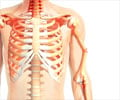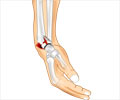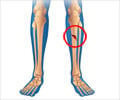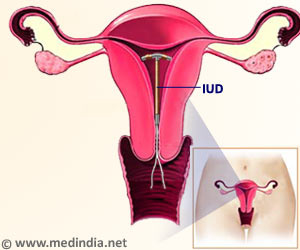Women who experience moderate to severe hot flashes and night sweats during menopause tend to have lower bone mineral density and higher rates of hip fracture than the peers with no symptoms.

Postmenopausal women face a greater risk of developing osteoporosis, a condition in which bones become structurally weak and more likely to break, than either younger women or men. The risk for this group is higher because the menopausal transition speeds the body's normal process of bone loss. In postmenopausal women, the body tends to breaks down old bone tissue faster than it can be replaced.
"Our findings suggest women who exhibit moderate or severe menopausal symptoms are more likely to have issues with bone health than their peers," said one of the study's authors, Carolyn J. Crandall, MD, MS, of the David Geffen School of Medicine at the University of California, Los Angeles. "This is the first large cohort study to examine the relationship between menopausal symptoms and bone health in menopausal women."
The prospective cohort study examined data from 23,573 participants in the Women's Health Initiative (WHI) Clinical Trial. The participants were women between the ages of 50 and 79. The study, which was conducted at 40 clinical centers across the country, tracked women's annual visits for 8 years, on average.
Participants asked about their menopausal symptoms, including hot flashes and night sweats, during the initial visit. WHI participants then were monitored for fractures during the follow-up period. Among the participants, 4,867 had their bone mineral density measured as part of a sub-study.
The analysis found women who reported having moderate or severe hot flashes when they entered the study were more likely to fracture a hip during the follow-up period than women who had no menopausal symptoms. After researchers adjusted for age, body mass index and demographic factors, they found women who had moderate to severe menopausal symptoms had lower bone mass density at the neck and spine during the follow-up period than women with no symptoms.
Advertisement















